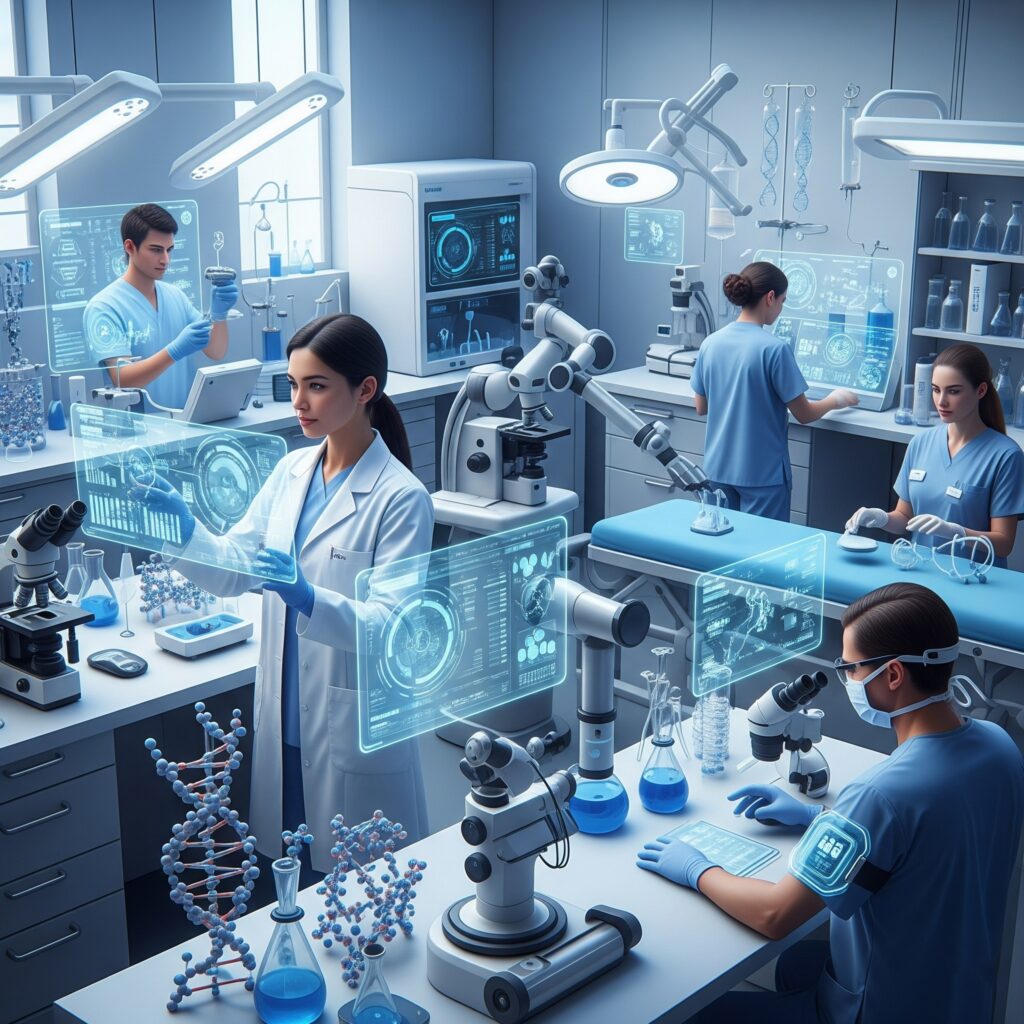The technological landscape is evolving at an unprecedented pace, with new innovations surfacing almost daily. At the heart of this relentless advancement, acting as both a catalyst and an enabler, lies Artificial Intelligence (AI). Far from being a standalone technology, AI is increasingly the foundational intelligence that breathes life into and accelerates the development of, a multitude of emerging technologies. Understanding its pervasive role is crucial to grasping the future of innovation.
The Brain Behind Autonomous Systems
Perhaps one of AI’s most visible roles is in powering autonomous systems. From the burgeoning field of self driving cars and delivery drones to sophisticated industrial robots, AI provides the cognitive capabilities that allow these machines to perceive, interpret, and interact with their environments. Machine learning algorithms, a core component of AI, enable vehicles to recognise obstacles, predict pedestrian behaviour, and navigate complex road networks. Similarly, in robotics, AI driven computer vision and natural language processing allow robots to understand commands, adapt to new tasks and even collaborate with human counterparts, moving beyond simple automation to genuine intelligent operation.
Unlocking the Potential of the Internet of Things (IoT)
The proliferation of interconnected devices within the Internet of Things has created an unimaginable deluge of data. Whilst IoT devices are adept at collecting this information, it is AI that transforms raw data into actionable insights. AI algorithms analyse patterns in smart home energy consumption, predict maintenance needs for industrial machinery, and optimise traffic flow in smart cities. This fusion of AI and IoT allows for proactive decision making, enhanced efficiency and truly personalised experiences, turning a network of sensors into a responsive, intelligent ecosystem.
Revolutionising Healthcare and Biotechnology
In the realms of healthcare and biotechnology, AI is proving to be a game changer. Its capacity to process and analyse vast datasets, far beyond human capability, is accelerating drug discovery by identifying potential compounds and predicting their efficacy. AI powered diagnostics are enhancing the accuracy and speed of disease detection from medical images, whilst personalised medicine is becoming a reality as AI analyses individual genetic and lifestyle data to tailor treatments. Furthermore, AI is increasingly employed in robotic surgery, offering precision and enhanced capabilities to medical professionals.
Accelerating Quantum Computing and Advanced Materials

Even in highly theoretical and nascent fields like quantum computing and advanced materials science, AI is playing a critical, albeit upstream, role. AI algorithms are being developed to optimise quantum circuits and error correction, potentially shortening the timeline for practical quantum computers. In materials science, AI is being used to predict the properties of novel materials, design new alloys with specific characteristics and accelerate the discovery process, significantly reducing the need for lengthy and costly physical experiments. AI, in essence, is becoming the intelligent research assistant for these groundbreaking areas.
Enhancing Human Computer Interaction
The way humans interact with technology is also being profoundly shaped by AI. Augmented Reality (AR) and Virtual Reality (VR) experiences are becoming more immersive and intuitive thanks to AI’s ability to track user movements, render realistic environments, and even interpret emotions. Natural Language Processing (NLP), a key branch of AI, is driving advancements in voice assistants, real time language translation, and intelligent chatbots, making human computer communication more seamless and natural than ever before. AI ensures these interfaces are not just functional but genuinely intelligent and responsive to human needs.
The Autonomous Revolution: Where AI Takes the Wheel

One of AI’s most captivating and tangible impacts is within autonomous systems. Consider the self-driving car: whilst sensors gather vast amounts of environmental data, it is AI specifically machine learning and computer vision that processes this information in real-time. It enables the vehicle to identify traffic signs, predict the movements of pedestrians, and make instantaneous navigational decisions. Similarly, in advanced robotics, AI provides the intelligence for robots to perform complex tasks, adapt to changing environments, and even learn from experience, pushing beyond mere automation towards genuine intelligent autonomy. Drones, too, are becoming smarter, with AI enabling advanced obstacle avoidance, intelligent surveillance, and precise delivery operations.
The Path Ahead: Challenges and Responsible Development
As AI’s role in emerging technologies becomes increasingly central, so too do the accompanying challenges. Concerns around data privacy, algorithmic bias and the ethical implications of autonomous decision making remain paramount. The potential for job displacement and the critical need for robust regulatory frameworks also demand careful consideration.
Final Thoughts
Ultimately, AI is not merely a tool but a foundational intelligence that underpins and accelerates the next wave of technological innovation. Its integration across autonomous systems, IoT, healthcare, advanced materials, and human computer interaction is transforming industries and shaping our future. As we continue to unlock AI’s immense potential, a commitment to responsible development and ethical deployment will be crucial to harnessing its power for the betterment of society.
Book a FREE consultation with Myk or one of the team today on 01325 939 838 and let’s build something brilliant together.
Thanks for reading,
Myk Baxter,
eCommerce Consultant
The post Breaking Down the Role of AI in Emerging Technologies appeared first on eCommerce Expert.




